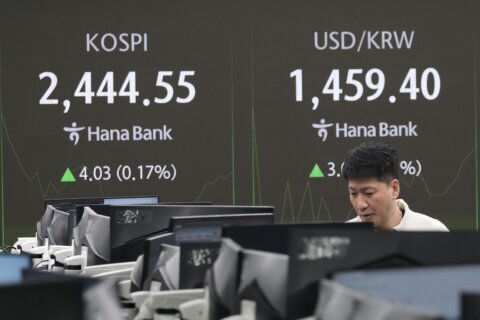MELBOURNE, Australia (AP) — Chinese Premier Li Qiang will visit New Zealand, Australia and Malaysia starting Thursday, officials said.
Li will visit the three countries from June 13 to 20, a Chinese Foreign Ministry statement said Tuesday.
Australia earlier announced that Li would land in the Australian city of Adelaide on June 15 and leave Perth on June 18.
Australian Prime Minister Anthony Albanese and Li are to hold an annual leaders’ meeting at Parliament House in the Australian capital, Canberra, during the visit.
The New Zealand and Malaysian governments have yet to announce Li’s itinerary in their countries.
Li’s visit to Australia and New Zealand will be the first by a Chinese premier, the second most powerful official in China’s leadership, in seven years. A Chinese premier hasn’t visited Malaysia since 2015.
Li’s Australian trip follows a visit by Albanese to Beijing last November, when leaders agreed to resume key bilateral dialogues and further several areas of cooperation.
China imposed a series of official and unofficial trade barriers that cost Australian exporters up to 20 billion Australian dollars ($13 billion) a year after Australia’s previous government urged an international inquiry into the origins of the COVID-19 pandemic.
Most of those barriers have been removed since Albanese’s government was elected in 2022.
Albanese said he would push for barriers to Australian lobster to be lifted and for imprisoned Australian democracy blogger Yang Hengjuno to be freed.
“Premier Li Qiang’s visit to Australia is an important opportunity to engage directly on key issues for both our nations,” Albanese said.
“Australia continues to pursue a stable and direct relationship with China, with dialogue at its core,” he said.
New Zealand officials say their discussions with Li will focus on their aim to double the value of the nation’s exports to China in a decade.
New Zealand has traditionally sought to balance its trade relationship with China with the interests of its Western allies in the Five Eyes intelligence sharing partnership, who have more assertively decried China’s growing influence in the region. Malaysia has similarly resisted taking sides in the U.S.-China rivalry.
Australia has more vocally sided with its most important security ally, the United States, in challenging China’s expanding influence.
___
Associated Pess writer Charlotte Graham-McLay in Wellington, New Zealand, contributed to this report.
Copyright © 2024 The Associated Press. All rights reserved. This material may not be published, broadcast, written or redistributed.






